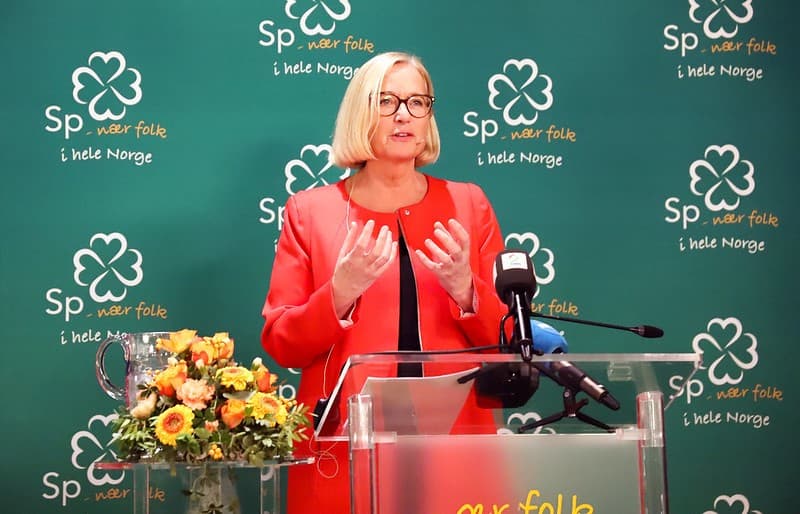Norway's Centre Party: 'The British have a better deal than the EEA'

Norway's Centre Party has called the UK's trade deal with the European Union "a better agreement" than the one Norway has as a member of the European Economic Area.
Marit Arnstad, parliamentary leader of the Centre Party, said in an interview with the Klassekampen newspaper on Tuesday that the UK had shown Norway could get a better deal than what it currently has as a member of the European Economic Area (EEA).
"The UK has got a deal with gives them more freedom and more independence," she said.
"From my point of view, the British have a better agreement than the EEA. They gain access to the internal market and common trade, which is desirable, but they do not have to be part of the dynamic regulatory development that places strong limits on individual countries' national policies."
The former agrarian party last month overtook the Norwegian Labour and Conservative parties, the traditional leading parties of left and right, in polling ahead of next September's general election, sending a political shockwave through the country.
Ms Arnstad said that after seeing the UK's success, her party would renew its calls for a public inquiry into possible changes to EEA membership.
"I think it highlights the need to study alternatives to the EEA," she said. "The most difficult thing for Norway is that we are constrained in areas of national politics, and that is happening in more and more areas. The British have now taken back these powers, and that is extremely interesting."
The Centre Party's call for an inquiry is backed by the Socialist Left Party, with Heming Olaussen, head of the party's EEA committee, telling Klassekampen that the UK's deal was superior.
"The British have been released from the European Court of Justice. They are no longer subject to EU supremacy and must not accept any EU legislation in the future as we have to," he said.
"This agreement... safeguards national sovereignty in a better way than the EEA does for us."
Even after the Centre Party's recent surge in the polls, however, eurosceptic parties in Norway still lack a parliamentary majority.
Both Labour and the Conservatives are historically pro-EU, and Norway's Prime Minister Erna Solberg argued earlier this month that the UK's Brexit struggles should serve as a warning to Norwegian eurosceptics.
"Political parties in Norway that think it is a good idea to leave the EEA because we can negotiate new, better agreements should look more closely across the North Sea," she said.
Comments
See Also
Marit Arnstad, parliamentary leader of the Centre Party, said in an interview with the Klassekampen newspaper on Tuesday that the UK had shown Norway could get a better deal than what it currently has as a member of the European Economic Area (EEA).
"The UK has got a deal with gives them more freedom and more independence," she said.
"From my point of view, the British have a better agreement than the EEA. They gain access to the internal market and common trade, which is desirable, but they do not have to be part of the dynamic regulatory development that places strong limits on individual countries' national policies."
The former agrarian party last month overtook the Norwegian Labour and Conservative parties, the traditional leading parties of left and right, in polling ahead of next September's general election, sending a political shockwave through the country.
Ms Arnstad said that after seeing the UK's success, her party would renew its calls for a public inquiry into possible changes to EEA membership.
"I think it highlights the need to study alternatives to the EEA," she said. "The most difficult thing for Norway is that we are constrained in areas of national politics, and that is happening in more and more areas. The British have now taken back these powers, and that is extremely interesting."
The Centre Party's call for an inquiry is backed by the Socialist Left Party, with Heming Olaussen, head of the party's EEA committee, telling Klassekampen that the UK's deal was superior.
"The British have been released from the European Court of Justice. They are no longer subject to EU supremacy and must not accept any EU legislation in the future as we have to," he said.
"This agreement... safeguards national sovereignty in a better way than the EEA does for us."
Even after the Centre Party's recent surge in the polls, however, eurosceptic parties in Norway still lack a parliamentary majority.
Both Labour and the Conservatives are historically pro-EU, and Norway's Prime Minister Erna Solberg argued earlier this month that the UK's Brexit struggles should serve as a warning to Norwegian eurosceptics.
"Political parties in Norway that think it is a good idea to leave the EEA because we can negotiate new, better agreements should look more closely across the North Sea," she said.
Join the conversation in our comments section below. Share your own views and experience and if you have a question or suggestion for our journalists then email us at [email protected].
Please keep comments civil, constructive and on topic – and make sure to read our terms of use before getting involved.
Please log in here to leave a comment.